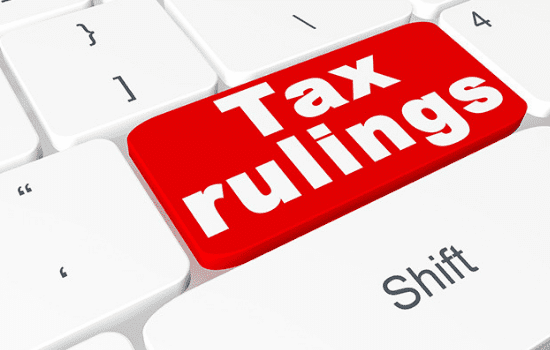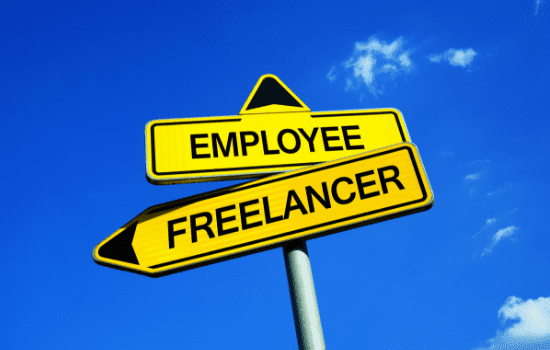Nexus: The “State” of Your Taxes
Originally published on November 22, 2022
Updated on November 14th, 2024
State and local tax (SALT) obligations aren’t always obvious, especially if your company isn’t based in the United States. Many business owners we encounter have never thought about the possibility of having to pay taxes in the states if they aren’t located there.
“But my only store is in Florida…” and “I only sell online…” are some of the more common phrases we hear when discussing tax with these clients.
That’s why nexus is so important. But what does this mean? According to Oxford Languages, nexus is defined as “a connection or series of connections linking two or more things.” For our purposes, this relates to how your company and its physical versus economic presence in the state is taxable.
Having a physical presence in the U.S. creates a physical nexus. However, that alone isn’t what determines whether you’re subject to state and local taxes.
There are several red flags that can signal a SALT issue, and most people aren’t even aware of them. And to make matters more complicated, the SALT landscape has changed dramatically for businesses with the Tax Cuts and Jobs Act of 2017 and the Wayfair vs. South Dakota decision in June.
SALT-y Matters: What to Do With a SALT Self-Audit Notice
State and local tax (SALT) matters have a way of sneaking up on well-meaning people, especially when it comes to sales tax. In many cases, they’re simply not aware of their obligations. If the Florida Department of Revenue (DOR) detects possible missed taxes, however, they’ll likely require a SALT self-audit.
If you get this notice, don’t panic.
In addition to a physical nexus, there is also an economic nexus, and here’s what you need to know about each of them.
What is a physical nexus?
Traditional physical presence nexus is relatively easy to define; in fact, guidelines were determined when the U.S. was first founded. The U.S. Constitution requires a link or connection between a state and the business (Due Process Clause) and substantial presence (Commerce Clause) in order to have a physical nexus.
That said, each state has its own statutes that define physical nexus. In some cases, it means your business owns property within the state (e.g., brick-and-mortar store or distribution center).
But some states cite other less obvious activities that could indicate you have a physical nexus there. This could include:
- Storing inventory
- Maintaining a warehouse
- Conducting meetings
- Installing equipment
- Providing consulting and other services
What is an economic nexus?
Economic nexus is the idea that the amount of business a company does within a state can create a taxable presence there. This standard can be a specific monetary amount, or it could be a percentage of total revenue (e.g., if a business did 25% of its sales in a specific state).
Similar to physical nexus, there’s no one-size-fits-all standard for state tax and economic nexus. All but 4 states have economic nexus laws, which means there are close to 50 different guidelines to follow.
You need to be familiar with each state’s individual laws so you know your potential tax liability. This liability can include revenue percentages and sales thresholds, as well as a physical presence. Consulting with a CPA well-versed in SALT issues is a huge help in this effort.
Some states set a threshold of transaction numbers as well.
For example, Florida requires out-of-state businesses that exceed the revenue threshold to complete a Florida business tax application. Meanwhile, Connecticut requires sellers that exceed the revenue and transaction threshold to apply for a Connecticut state sales permit.
Risky Business: Is Your Company in Compliance with Tax Laws?
Being aware of tax laws does more than open a plethora of savings opportunities. It also reduces your business risk. Noncompliance with IRS or state Departments of Revenue rules can lead to tens of thousands of dollars in penalties. Yet many times, violations are simply the result of not knowing about tax obligations in the first place. Learn more to avoid risky issues in the future.
Questions to ask to help determine your business’s nexus
If you’re not sure where you stand regarding state and local tax levied outside of your domicile, here are some questions you can ask yourself.
Do you sell to U.S. customers?
Many businesses sell to customers over the phone, through a personal website, or via Amazon, Walmart or other selling platforms. If you’re shipping from your country to the U.S., state sales taxes and income tax can apply. This includes not only tangible goods but also non-tangible products like software and (in some cases) services.
The (New) Cost of Doing Business: State Sales Tax for Online Purchases
On June 21, 2018, the court ruled in the South Dakota v. Wayfair case that the physical presence rule established in a 1992 case was an “unsound and incorrect” interpretation of the Commerce Clause that skewed the retail industry in favor of remote sellers.
Do you have employees or use contract labor in another state?
Thanks to advances in communications and file-sharing technology, companies are allowing employees to work from remote locations more than ever. This comes in handy if, for example, a trusted long-time employee must move away, but you would still like to keep them on staff.
However, it might require your company to withhold state taxes on that person’s wages if they live in a state that levies one. It may also trigger other state and local tax issues.
Employee or Contractor? What Tech Startups Need to Know
Make sure you classify your team correctly. Distinct conditions must be met to consider someone an independent contractor; failure to do so can lead to significant costs, fines and other ramifications.
Do you lease retail or office space in another state?
If you own commercial property in the U.S.—for example, an office building, shopping center, apartment complex, or rental home—you might be required to pay state income taxes on rental revenues.
Know the Rules of the Florida Commercial Rent Sales Tax
Florida businesses often hold real property and their business operations in separate entities for liability purposes. These types of structures need to be especially mindful of the sales tax rules because, even though the two businesses have the same owner, sales tax is still due on any rental payments.
Do you advertise in local media, phone directories or websites in other areas?
This might establish a local presence even if you don’t have a physical location in that area. So if you buy an advertisement online or potentially in a newspaper or print advertisement, it could lead to tax obligations from that state.
Do you use drop shipment services in another state?
In a drop shipment arrangement, the seller places a customer’s order with a third party that then delivers the order to the client. This can create a complex tax picture that must consider the locations of all 3 parties, methods of delivery and more.
Get help from a tax professional
If all this sounds overwhelming … that’s because it is, especially if the U.S. isn’t your home country. What’s more, the statute of limitations on state taxes does not stop until you begin filing in the states where you owe. So the longer you wait to find out if you’re liable, the higher your penalties and interest may be.
Consider hiring the international tax professionals at James Moore to help you stay in compliance. They keep track of the latest developments by state, so you’re free to run your business.
As long as you understand that you may be subject to state tax—even if you’ve never stepped foot in that state—you’ll be prepared to navigate the confusing state tax waters.
Other Posts You Might Like






